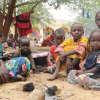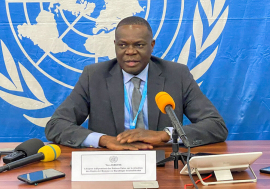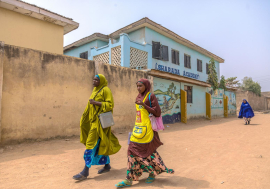Africa needs to “play smart” in trade with Asia
Africa needs to “play smart” in trade with Asia
Africa’s success in avoiding the worst of the economic crisis that has swept the industrialized world has been due in large part to the remarkable growth of trade and investment with China, India, Brazil and other “emerging” developing countries. In the last three years Africa’s trade with China has doubled, reaching $106.7 bn in 2008. While China dominates in terms of sheer numbers, trade and investment with other emerging markets, such as Brazil, India and Malaysia, has also been rising sharply, reducing Africa’s dependence on traditional partners in Europe and the US and fuelling the continent’s impressive growth in recent years.
About one-third of Africa’s total trade is already with markets in emerging or other developing countries. China alone is now Africa’s second-largest single trading partner. Although the European Union (EU) as a whole continues to dominate Africa’s trade, that dominance is receding, especially in imports: the EU now accounts for only a little over a third of the continent’s inward trade.
Analysts hope these new ties will help Africa rebound from the current global slump but a new UN study argues that African governments and companies must play smart if they are to reap the full benefits of South-South trade: “Whilst some emerging economies have a strategy for Africa, Africa does not have a strategy towards the emerging economies,” notes the UN Office of the Special Adviser on Africa (OSAA) in the new report. Having a strategic approach is vital, the paper says, because Africa is much less important to its new trading partners than they are to Africa, and ending dependence on commodity exports is vital to the region’s development goals.
Raw materials
The rapid growth in trade with emerging economies in recent years has not led to a significant change in the makeup of Africa’s exports. Raw materials, particularly oil and minerals, still dominate, as they did 10 years ago. A few major producers dominate the continent’s trade with the new markets. Algeria, Angola, Nigeria and South Africa provided 82 per cent of Brazil’s imports from Africa in 2007 and 53 per cent of China’s, according to the OSAA report. Last year, just 10 countries accounted for 79 per cent of the continent’s entire trade with China, the South African Centre for Chinese Studies reports.
China’s trade with Africa is driven by the need to secure long-term supplies of raw materials, particularly oil and minerals, to fuel its economic development. The Chinese authorities aim to get 40 per cent of their imported oil from Africa, from the current 30 per cent and they are seeking to do this mainly through “natural-resources-for-infrastructure” arrangements. In these, African governments agree to long-term supply contracts in exchange for loans to finance the construction (usually by Chinese companies) of power stations, railroads, water and sewerage systems and other projects.
In Angola, China will get oil in exchange for some $5 bn in loans and other investments to develop everything from houses and farms to ports and railways. China now takes 30 per cent of Angola’s oil exports. Guinea and Gabon have struck similar deals to supply iron ore. China now takes 60 per cent of Sudan’s output. The Democratic Republic of the Congo (DRC) has negotiated a $9 bn swap of copper and cobalt for the development of a new mine, plus a wide range of infrastructural development.
Controversy and uncertainty
Recently a number of these arrangements have run into obstacles. The DRC deal has been criticized by the IMF, for example, on the grounds that it may deepen the country’s debt burden. The problems come against a background of criticism of the trade and investment practices of some emerging market countries. An agreement to allow China’s NFC company to reopen the Luanshya mine in Zambia brought protests by the main opposition party which pointed to a history of labour problems at another mine run by the NFC, where a number of miners were killed in an explosion in 2006. A 2005 study of the Tanzania construction industry by the International Labour Organization pointed to concerns over employment conditions in Chinese companies. In addition, a number of non-governmental organizations have called on China and other emerging-market investors to stop doing deals in countries with authoritarian governments or widespread human rights abuses.
Some observers, often from the West, have argued that the agreements offer poor long-term returns, since they do little to generate local jobs or bring in new technologies. China in turn has accused its Western critics of hypocrisy. But at the same time, it is taking steps to change some of its most criticized practices. Chinese businesses in Angola, for example, are making extensive efforts to hire and train local labour. The DRC deal also includes commitments for local employment and training, as well as using local suppliers. The Chinese government has recently issued “good corporate citizen” guidelines to govern the operations of its companies overseas.
According to Kwesi Kwaa Prah, an academic from Ghana, China’s approach to Africa has been mainly positive. But to help overcome the differences that are bound to emerge in such complex relationships, both China and Africa need to pay more attention to “people-to-people relations.”
The OSAA report urges emerging country governments to recognize that their long-term access to Africa’s natural resources depends on developing non-exploitative, “win-win” outcomes rather than “win-lose” agreements that undermine Africa’s development agenda. “Every effort,” OSAA cautions, “must be made to avoid Africa entering a new era of debt dependency.”












